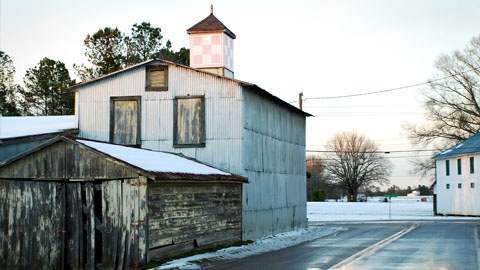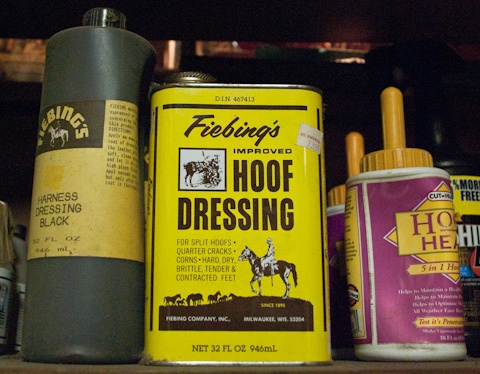A hundred years ago, the area we now call Cary was dotted with small villages. One of those was called Carpenter.
Earliest Days
Dale Carpenter, the present proprietor of Carpenter Supply, kindly shared a bit of local history with me.
His great-grandfather, William Henry Carpenter, had a farm near the current location of Good Hope Baptist Church. Will began selling general-store type of merchandise from there in 1885.
In 1895, Will moved his store to the current location at the corner of Carpenter-Upchurch and Morrisville-Carpenter Roads.
Local historians, including Bryan Edwards, speculate that it was either dumb luck or brilliant planning that motivated Will to pick that exact location. By 1906, the Durham & Southern railroad had a depot right in front of the store.
Durham & Southern
In all likelihood, Will Carpenter was well aware of the plans for the railroad. The Duke family was getting tobacco from local farmers and had invested in cotton production in Erwin, NC. They needed a way to get the harvest to Durham and Carpenter lies on a ridge perfect for a railroad bed.
The railroad eventually built a coal chute, water tower, passenger and freight depot and housing for railroad personnel. According to Edwards, “for all practical purposes, the railroad was operated from Carpenter” (Carpenter, NC – As I Remember, 2006, by Bryan Edwards).
The Durham & Southern put up a sign identifying the village as “Carpenter” around 1905.
Charlie Ferrell
Another enterprising citizen in the area was Charlie Ferrell.
Charlie opened a store across the street from Will Carpenter. At one time, Mr. Ferrell owned or participated in eight businesses in the village.
In 1906, the U.S. Postal Service established a Carpenter Post Office in Ferrell’s store. Charlie was the post master.
A Bustling Village
Carpenter grew to be a bustling village. There was a Carpenter School, serving children of all ages until 1926 when it transferred its students to the new Green Hope School. Good Hope Baptist Church moved to the community around 1900. Judd Clark had an early auto shop next to the Carpenter Store, selling Dodges and fixing cars until a move to Apex in 1942. There was a funeral home, jointly owned by Will Carpenter and Mal Butts. The business later moved and became Apex Funeral Home.
In addition to his store, Charlie Ferrell had a sawmill, blacksmith shop, grist mill and cotton gin. Maude and Russell McGhee had a small general goods store and barbershop where you could get a shave, a bath, a haircut and a Pepsi all in one place.
Gradual Decline
Dale Carpenter told me that the Depression landed a heavy blow on the village. In 1931, the Durham & Southern moved to end operations in Carpenter. By 1935, the tracks had gone silent.
Charlie Ferrell became ill in 1929 and passed away in 1933. All his businesses were shut down. In 1936, Troy and Lesbia Edwards rented and reopened the Ferrell Store, but the tide was running against the village.
After the Second World War, most local farmers switched to tobacco. But the advent of RTP and the growth of Cary eventually made “the land too expensive to farm,” as Dale told me.
Carpenter Today
Carpenter Village and the enterprising people who lived there is remembered today in many of the place names in western Cary. Carpenter Farm Supply continues its operation, 125 years after its founding.
From agricultural needs like Fiebing’s Hoof Dressing to consumer hardware and garden supplies, you can still go into the 1895 store, buy a few items and sit around the old cast iron stove drinking a Pepsi and swapping news with your neighbors.
While you’re in the store, pick up a copy of Bryan Edwards 2006 book “Carpenter, NC – As I Remember It” if you would like to know more about the area and see some terrific historical photographs.
See also
Some content originally from CaryCitizen, used with permission.





